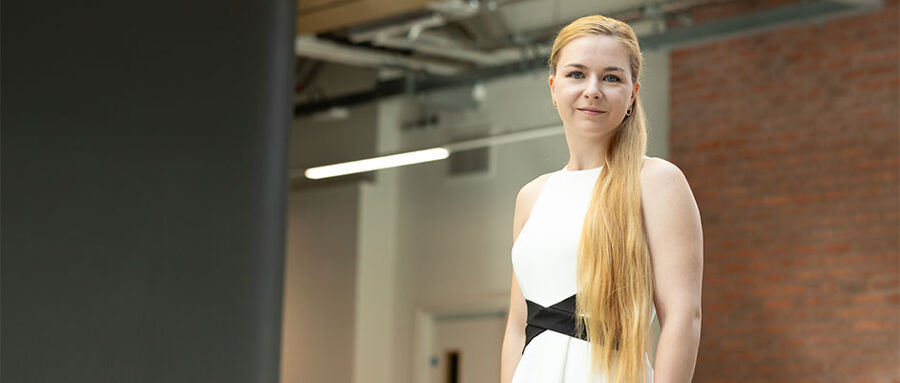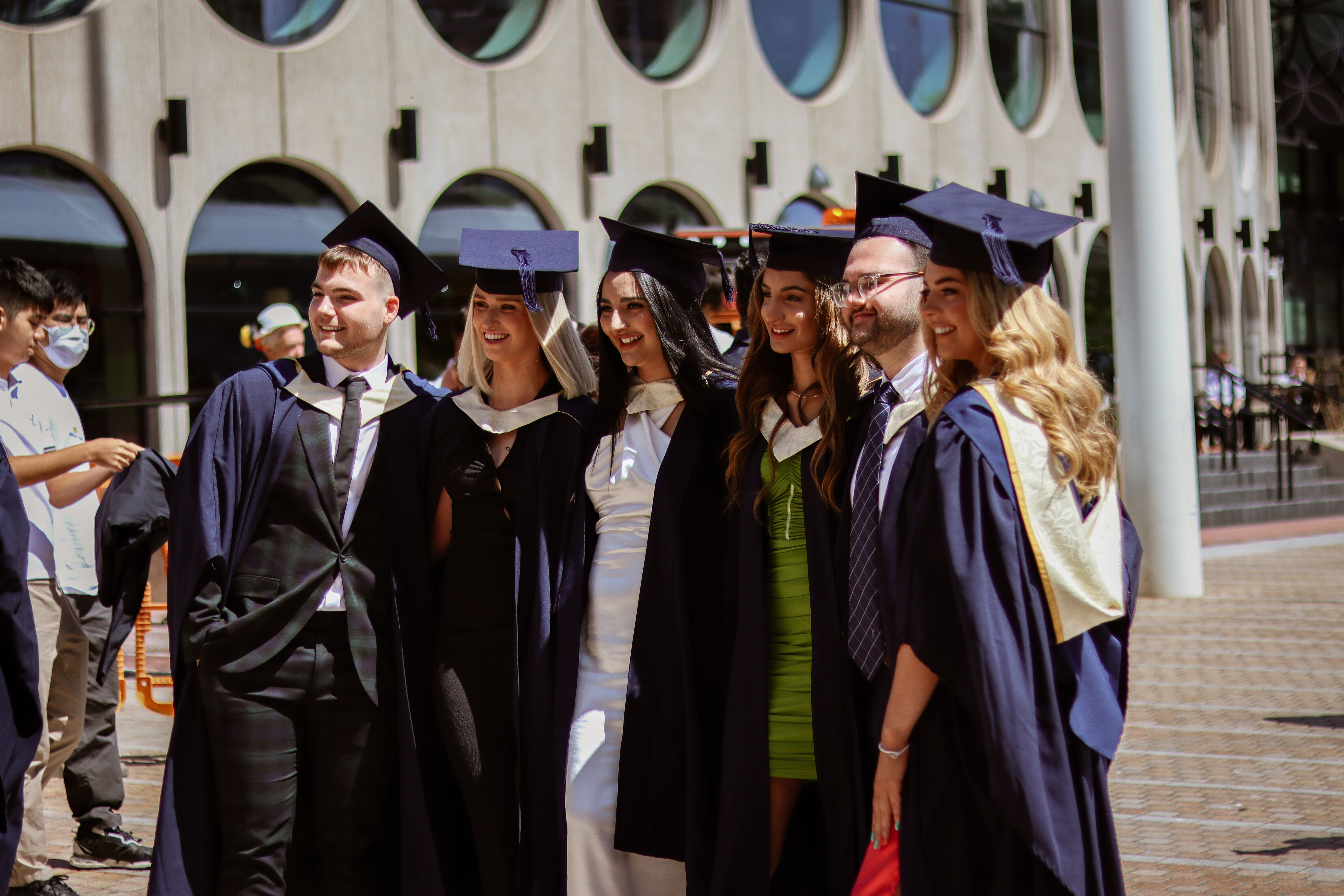
Izabella Varnai
Automotive Engineering BSc (Hons)
When Izabella took a placement at Toyota Motor Europe during her time completing an Automotive Engineering degree at BCU, she realised that manufacturing was where she wanted to be. Nowadays, she’s a Lead Engineer at Jaguar Land Rover (JLR) and is working on the production of cars for the future.
“Engineering is in my blood, I think. My father is a mechanical engineer and my mother studied to be a chemical engineer. My grandfather was a structural engineer in a uranium mine in Hungary. My uncle is an architect and structural engineer and so is his wife. There wasn’t any pressure from my family to go into engineering, but I would say that’s what inspired me the most.
When I started at JLR, I was the only woman in my department and now there are three. When I started, everybody looked at me like I was an alien, but now it’s normal. I’m proud to have played a part in that.
In the first and second year at BCU, I learned the basics of engineering, which prepared me for my third year, when you can do very specific modules, so for me, I focused on automotive engineering.
During my studies, I also completed a placement year. I worked for Toyota Motor Europe in the Vehicle Production Engineering’s Assembly division. Whilst, I worked there, it gave me the opportunity to have real responsibilities by working on my own projects and supporting on larger ones. I also gained experience in presenting ideas and methods to fellow engineers, which gave me invaluable industry experience that I took with me into the real world.
After graduating, I hoped to go back into manufacturing as I’d really enjoyed my placement at Toyota and I just knew that was what I wanted to be doing. However, the job market was tough at the time, and many employers had restricted their intake on graduate programmes, so I wasn’t having any luck. But then I was headhunted by Semcon, who at the time wrote Jaguar Land Rover’s vehicle manuals. I started there, about a week after handing in my final project, so it was a really quick transition from studying to working.
My job was to write the car manuals. It didn’t involve a lot of engineering, but I did it for about five months. I hoped that it would be my way into JLR, so I had to stay positive and keep working towards getting into manufacturing. But thankfully, as I was applying for multiple roles at JLR, I soon got accepted and joined the company. As luck would have it, the next year JLR acquired the user manual department of Semcon, so I would have ended up at JLR no matter what. I think you call that fate!
My course at BCU could not have prepared me better for working in industry. Not only did my placement give me the experience that I needed to land a role at JLR, but the skills I was taught on the course have been invaluable to me in my role. In my course work, I made a powertrain model of a PHEV (plug-in hybrid electric vehicle), and the first car I worked on at JLR was a PHEV. I couldn’t have been more prepared! In my first week in the job, I was helping my colleagues understand where it throws the energy from and where the torque is transmitted from, all thanks to the skills and knowledge I picked up at BCU
My proudest achievement since graduating is being promoted to Forward Planning Lead Engineer. I’d been working for JLR as a Process Engineer for a year, when the manager of my department got promoted, and our Lead Engineer became the stand-in whilst they recruited for the role. This left the Lead Engineer position vacant, which I became the stand-in for three months. I later applied for the job and got the role.
Working in Forward Planning means working on models that are currently being designed and will eventually be produced. The one that I’m working on right now won’t be produced for another three years. There’s a lot of work that goes into getting a car produced and put on the market, so I’m kept very busy.
A car starts out as a piece of sheet metal, that’s taken to the body shop to be made into a frame, then it goes into the paint shop and then it’s time to apply the parts. I get a programme for a car that’s going to be made in four of five years' time, and I get told basic things like the engine type, what the powertrain is going to be, and what plant it’s going to be made at. Then, we start looking at finances, how much it will cost to prepare the plant, and how profitable the car is expected to be.
My work includes a lot of overseas travel, especially to China, which includes building each car step-by-step with my colleagues over there. When I’m not visiting China, my typical workday includes calls and meetings with the engineers in China in the morning as they’re seven hours ahead of us in the UK. Then, I’ll answer messages and emails from the day before I go into meetings with my colleagues in the UK that are also working on designing the car. Occasionally, there will also be networking events that I can go to at lunch. There’s a big community for women in engineering now, and a lot of diversity events that I can attend too.
My advice to current students would be to make the most of the resources available to you. The university teaches you so much, but there’s only so much that can be covered each week, so do your own research in your spare time and make the most of it. This will also give you a better chance of being successful in your career.
You should also try and have a clear plan for what you want after university. For me, that wasn’t clear until I did my placement and realised that manufacturing was where I needed to be.
To me, I AM BCU means that I am part of the bigger family of BCU. I’m really glad that I can keep in touch with my lecturers and the wider university, coming back whenever I can, because I feel like I’m part of something bigger than myself.”

Join our community
Stay connected as a BCU graduate and join our Alumni community. From news and events to career advice, our community is with you through graduation and into your future.